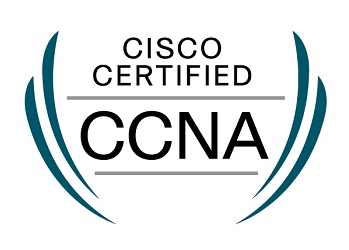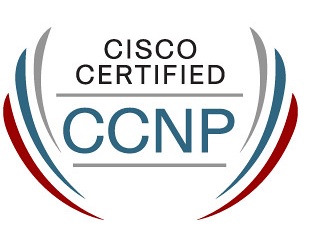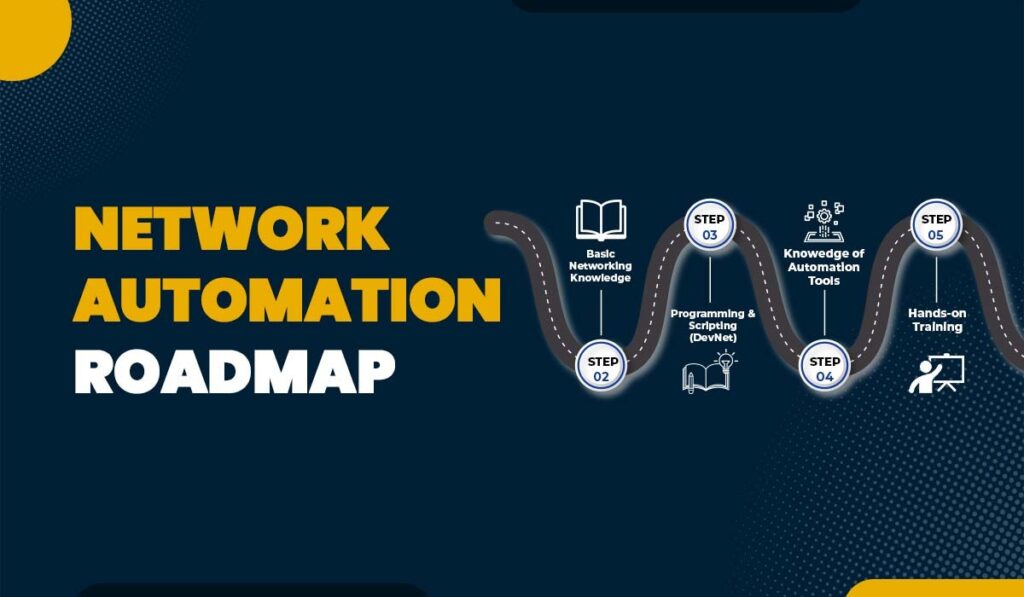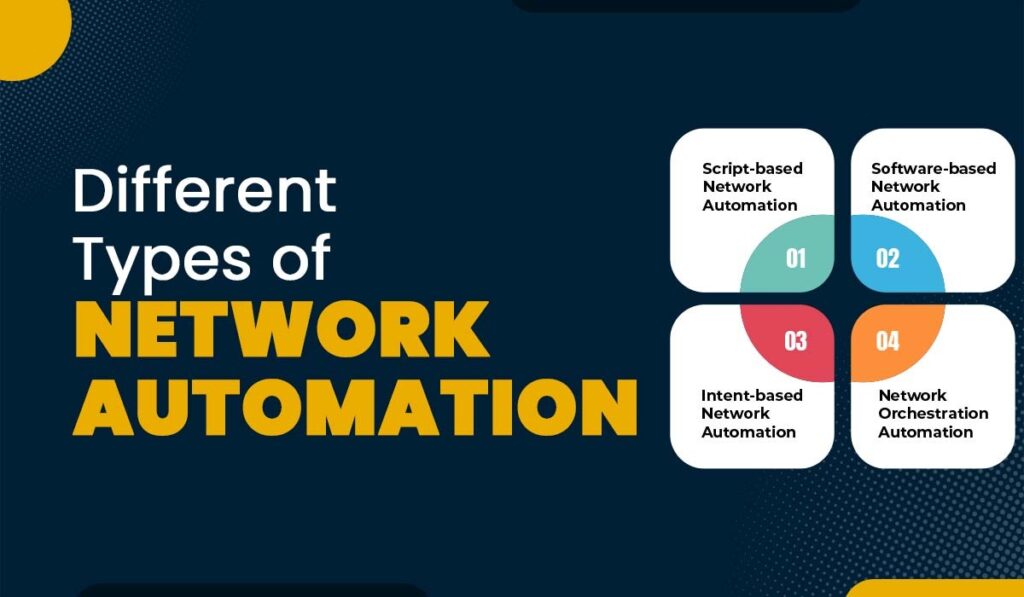Introduction
In today’s digital world, its a must for anyone to learn a skill that aligns not only with their career but also with the company’s needs. Networking is a skill that is in high demand, and it can open up many career opportunities for you in different sectors such as IT, Telecom, government, education, hospitals, and many more. Hence, if someone is interested in networking and wants to pursue a career in this field, they might wonder which are the best networking courses for beginners.
In this blog, we will be guiding all network enthusiasts and others on why to choose a career in the networking field and, more importantly, assist in choosing the best networking courses for beginners. We will also focus on some of the jobs associated with networking courses as well as the expected salary.
Before getting into more details, let’s first understand what is networking and why to choose it as your career option.
What is Networking?
Networking is the process by which different devices can send or receive data as well as share resources over a network. Networking is the foundation of the Internet, cloud computing, cybersecurity, and many other fields. Networking professionals are in high demand all over the globe because of the dependency of companies on the Internet.
But the question that arises now is, why choose networking as your career?
Why learn Networking?
Networking is a dynamic and rewarding career choice for many reasons. Some of the reasons why to choose this field are:
- It allows network enthusiasts to work in different sectors such as IT, telecom, banking, education, healthcare, etc.
- Further, one can learn new technologies and skill sets as the networking field constantly evolves with time.
- One can get high-paying jobs and also advance in their career by obtaining certifications in networking.
Now we have a basic understanding of why networking is a good career choice; now let’s understand the networking courses for beginners.
Best Networking Course for beginners
Networking has already shown its importance both in terms of career and in better company functioning. We have hand-picked some of the best networking courses for beginners who want to make a career in the field of networking. These are:
- CCNA (Cisco Certified Network Associate)
- CCNP (Cisco Certified Network Professional)
- 100% Job Guarantee Courses
Let’s understand each of the above-mentioned Networking courses in detail.
CCNA
If you are new to networking, start with a foundational course that covers the basics of networking concepts, terminology, protocols, devices, and models. One of the most popular and widely recognized networking courses for beginners is the Cisco Certified Network Associate (CCNA) course.

CCNA is a certification program that validates your ability to install, configure, operate, and troubleshoot networks using Cisco products and technologies. CCNA covers topics such as:
- Network fundamentals
- Network access
- IP connectivity
- IP services
- Security fundamentals
- Automation and programmability
It is always recommended to go for CCNA and then to advanced courses afterward. This will help you advance your career in networking.
Career Opportunities After CCNA
The CCNA course covers a wide range of topics, making it suitable for students who are interested in pursuing a career in the field of networking. If someone is curious about the scope of the CCNA course in India, we have listed job profiles one can apply for after completing the CCNA course.
- Network Engineer
- Network Administrator
- Network Associate
- System Engineer
- Network and Support Technician
CCNP Enterprise
If someone is comfortable with the basic knowledge of networking and wants to enhance their skill set, CCNP Enterprise is a good choice. It assists in validating your ability to implement, manage, and troubleshoot complex networks using Cisco products and technologies.

CCNP Enterprise covers topics such as:
- Enterprise network architecture and design principles
- Advanced routing protocols and services
- Advanced switching technologies and services
- Network security best practices and solutions
- Network automation and programmability concepts and tools
CCNP is a higher-level course than CCNA and requires more experience and knowledge in networking. You can also check out the difference between CCNA and CCNP.
Career Opportunities after CCNP Enterprise
After completing the CCNP Enterprise training, you will have a wide range of opportunities to advance your career in the networking field. The CCNP is often regarded as the ideal qualification for IT professionals looking for opportunities to advance in their careers. Some of the job roles associated with CCNP Enterprise training are:
- Network Engineer
- Network Associate
- Advance Technician
- Network Security Engineer
- Data Center Support Engineer
100% Job Guarantee Courses
Either candidate can go for CCNA and CCNP separately, or they can also join 100% job guarantee courses for better career opportunities. This means that if someone completes the course successfully, they will be guaranteed job placement within a certain period of time. They will also get access to career guidance, resume building, interview preparation, and other support services that can help them get their dream job quickly.
We have discussed some of the networking courses that are best for beginners, let’s discuss the job roles associated with the discussed courses that can further lead to a successful career.
Job Roles and Salary after these Networking Courses for Beginners
After completing these networking courses for beginners, candidates can apply for various job roles in the networking field, depending on their level of expertise and experience. Some of these are:
Network Analyst: The role of network analysts is to monitor and analyze the company’s network performance and security.
Network Technicians: They are the ones who install, configure, test, and also repair different types of network equipment and cables. Apart from that, sometimes they also do basic troubleshooting and support roles.
Network Administrator: When we talk about network administrators, they usually manage as well as maintain the company’s systems and servers. Sometimes they monitor the network’s performance and also check the security measures.
Network Engineer: One of the many responsibilities of a network engineer is to design and implement those designs for better network architecture and solutions. You should also know how to become a network engineer.
Network Support Specialist: They play a significant role in providing technical support and assistance to different types of network users, which indirectly assist in enhancing the company’s profile.
Network Security Engineer: The sole purpose of a network security engineer is to make sure that network over which the company, as well as the user interacts must be safe from external threats. Further, they identify the threats and take every possible safety measure to keep sensitive data safe.
Salaries after Networking Course for Beginners
If we talk about salary, once you have completed one of the many networking courses for beginners, it will range from 5 to 7 LPA. But this also depends on many factors, such as your networking skills, communication skills, experience, etc.
How to Choose the right Networking Course for you?
Before selecting a networking course, you should consider a few factors, such as course content, duration, certification, and hands-on experience. Select a course that resonates with the skills you want to learn and has high market demands.
Courses that offer labs or simulations provide practical skills that are highly valued in the job market. Additionally, you should consider courses that offer industry-recognized certifications that can enhance your resume and give you a competitive edge.
Important Tools for Networking Courses for Beginners
Network Simulators like Packet Trace and GNS3 allow beginners to practice networking without the need of physical networking devices.
- Packet Tracer: Packet Tracer is a powerful network simulation tool developed by Cisco that allows users to create and test virtual networks without physical hardware. It’s widely used for practicing networking skills, especially for CCNA students and those learning Cisco technologies.
- GNS3: GNS3 (Graphical Network Simulator-3) is an advanced network emulator that lets users simulate complex network environments with real network devices and configurations. It is ideal for both – intermediate and advanced learners. It supports both Cisco and non-Cisco devices, making it versatile for network practice.
Common Challenges with Networking Courses for Beginners
The networking field is not as easy as it sounds. There are various challenges that one might face if they are not serious about learning. Here are a few:
- Networking Courses for Beginners also involve various technical terms that might not be easy to grasp at first for a non-technical person.
- The networking field is not all about theory; it requires a thorough practice of various lab scenarios, which might become a challenge for many.
Tips to succeed with Networking Courses for Beginners
Here are a few tips that can guarantee success with these networking courses for beginners:
- Use various lab simulators and labs provided by your course provider to practice as much as you can. Use these tools to apply what you’ve learned in classes in real-world scenarios.
- Collaborate with study groups and Forums, ask your doubts, and engage in various discussions to deepen your knowledge.
- Use free resources such as YouTube videos, online blogs, etc., to learn various topics in detail.
Frequently Asked Questions
Q1. How can I start learning networking?
Networking is a vast topic that covers various concepts, such as the basics of computers, protocols, and many others. If you want to learn networking, you must:
- Learn the fundamentals of networking
- Get familiar with some common network devices and software
- Join online communities and forums where you can ask questions
- Keep yourself updated with the latest trends and developments
Q2. Can I learn networking online?
The simple answer to this question is “YES”. Many training institutes provide online training courses to help you learn networking. One can also learn by themselves through pdfs, eBooks, or platforms such as YouTube and many others.
Q3. Is networking a good career?
YES, networking is a rewarding career that not only enhances your skill set but also gives you the opportunity to get high-paying jobs.
Q4. Is IT hard to study networking?
Studying networking is easy, but learning networking requires some dedication and time. Furthermore, it’s now easy to study as everything is online and easily accessible.
Conclusion
Networking courses for beginners open doors to a world of opportunities. From foundational skills to advanced concepts, these courses are stepping stones to a rewarding IT career. Whether you’re interested in troubleshooting, cloud computing, or cybersecurity, a solid understanding of networking fundamentals is essential. As network engineers will always be in demand, no matter whether it’s a recession or any other scenario. In this blog, we have focused on the best networking courses for beginners and discussed the career opportunities these courses bring with them.





